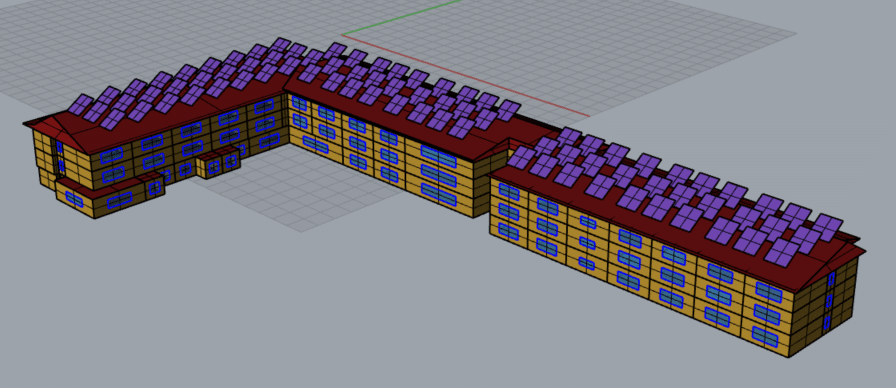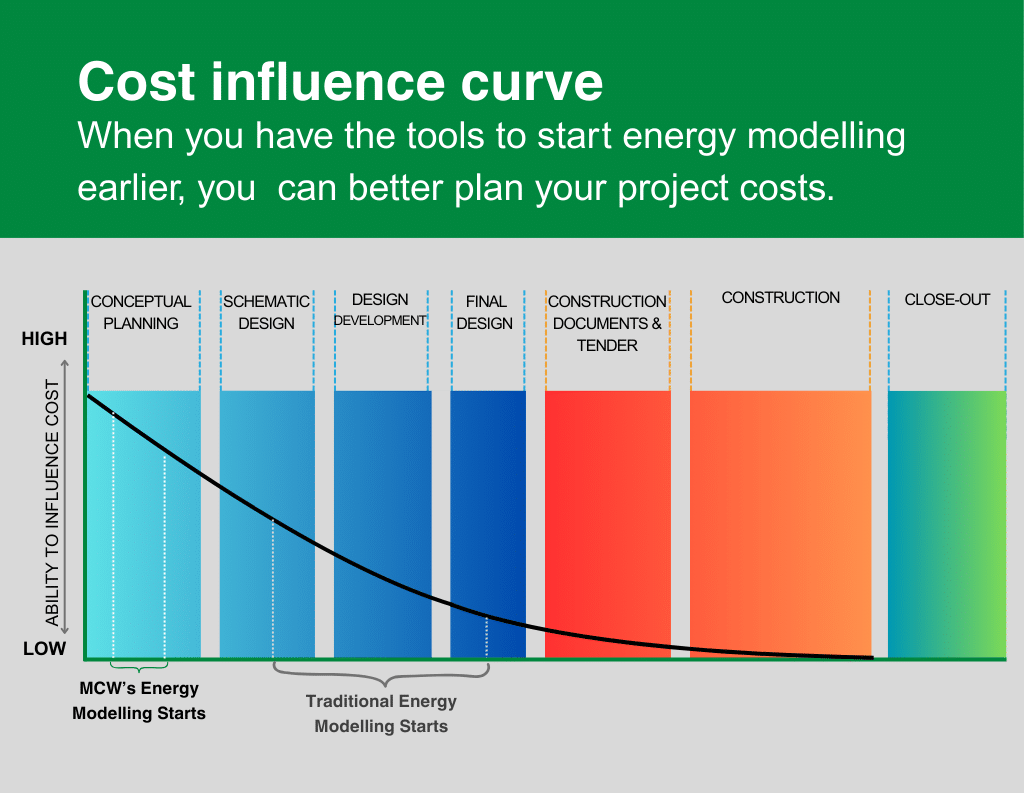Meet MCW’s Parametric Energy Modelling
At MCW Consultants, we recognize that energy efficiency is fundamental to sustainable, high-performance design. However, conventional energy modelling can be time-consuming, often delaying the design process by weeks before yielding actionable insights.
Parametric Energy Modelling can accelerate this process by leveraging parametric analysis. This method involves systematically varying key input parameters within a building energy model to understand their influence on overall performance. Much like adjusting speed, temperature, or pressure in an industrial system to enhance product quality, parametric analysis enables our team to identify optimal design strategies by exploring a wide range of scenarios in a fraction of the time.
The result is faster, data-driven decisions that support design excellence and environmental responsibility from the earliest stages of your project.
What is Parametric Energy Modelling?
What is Parametric Energy Modelling? It’s a way to use energy modelling as a design-assist in the early stages of project kickoff and schematic design!

Benefits
- Informed Design Decisions – Quickly assess the energy performance of multiple design concepts, empowering you to make smarter choices for your projects.
- Enhanced Collaboration – Share actionable insights with clients and stakeholders faster, fostering trust and clear communication throughout the project lifecycle.
- Sustainability at the Forefront – Evaluate energy efficiency during the design phase to ensure your projects align with environmental goals while maintaining aesthetic and functional excellence.
Why Choose MCW for your Energy Modelling?
- Speed – Say goodbye to long waits. Our toolkit delivers precise energy modelling results in hours or days, enabling you to keep projects on schedule without compromising creativity.
- Flexibility – Easily compare multiple parameters and design scenarios to find the optimal balance between energy efficiency and aesthetics. Tailor your designs to meet performance goals seamlessly.
- Early Integration – Incorporate energy modelling insights into your design process at an early stage, helping you make informed decisions when it matters most.
- Accuracy – Depend on detailed and reliable data to optimize building performance, reduce the carbon footprint, and meet sustainability targets.

